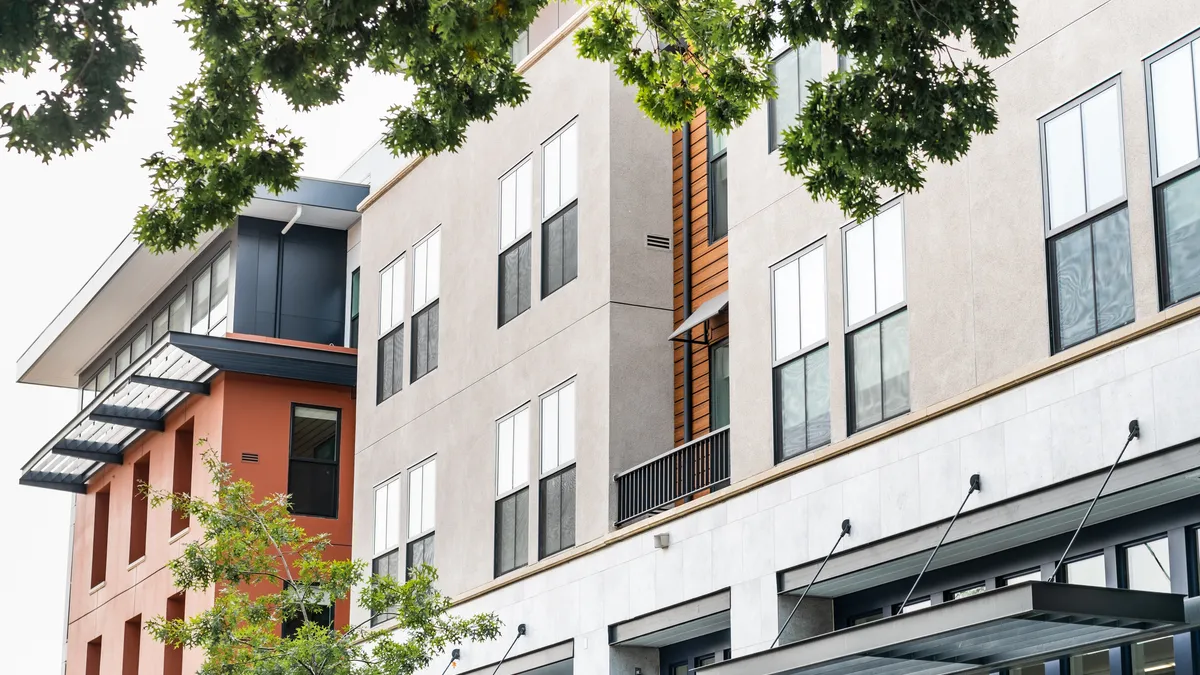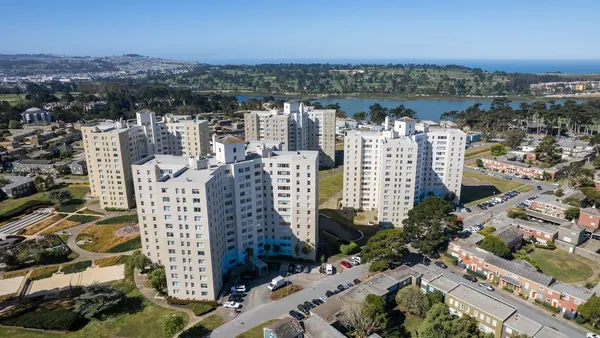Dive Brief:
- The Austin City Council voted earlier this month to eliminate parking requirements at nearly every property in Austin, Texas, including single-family homes, apartment buildings, office buildings and malls. The council cited housing affordability, land use and impacts on walkability among their reasons for making the change, according to The Texas Tribune.
- Previously, the city had required all new buildings or developments to provide a certain amount of off-street parking spaces dependent on the use. Developers are still required to provide a minimum of one handicap-accessible parking space, located on site within 250 feet of the property, according to the draft ordinance.
- Another consideration in these changes is the city’s rising investment in its public transit. A few months ago, Austin revealed its final plan for the city’s upcoming light rail system. Once completed, the $10.3 billion project would cover 15 stops on a 10-mile stretch of the city’s downtown and connect to existing public transit systems.
Dive Insight:
Building parking spaces is a costly endeavor. In a recent affordability impact study, Austin city officials estimated that the addition of a single parking space per multifamily unit raised rent by up to $200 per month. In addition, the Austin Transportation and Public Works department placed the development cost for city parking at $5,000 to $10,000 per space in parking lots and $20,000 to $60,000 per space in garage structures.
Many cities have removed or scaled back their parking requirements for multifamily development in recent years. San Jose, California, and Bend, Oregon, have eliminated them altogether, and New York City recently proposed doing so as well. Reducing construction and land costs and creating opportunities for affordable housing are some of the major reasons cities are taking this step.
Under current requirements, many apartment parking spaces sit unused. A study from Rutgers Center for Real Estate at Rutgers University in New Brunswick, New Jersey, found that renter-occupied households in the state of New Jersey used fewer parking spaces than multifamily properties were required to have under state law. The RCRE team estimated that unused parking added up to $2 million to the cost of a typical project.
Reducing the required number of parking spaces would reduce construction and operating costs, which would lead to lower rents, the study concluded. Less parking also reduces a property’s environmental impact, whether by urban heat island creation, altered stormwater runoff or emissions from concrete production.








